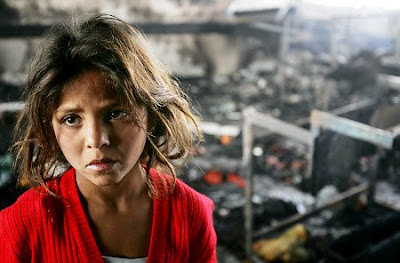
INTRODUCTION_
The conflict began on June 24, 2006, when in light of ongoing Qassam rocket attacks on Israeli cities, Israeli operatives seized suspected Hamas members Osama and Mustafa Muamar in the Gaza Strip. On June 25, a Hamas attack in Israeli checkpoint resulted in the deaths of two Israeli soldiers and the capture of Israeli Corporal Gilad Shalit. In turn, Israel launched Operation Summer Rains on June 28. Israel maintains that it mobilized thousands of troops in order to suppress Qassam rocket fire against its civilian population and to secure the release of Corporal Gilad Shalit. It is estimated that between 7,000 and 9,000 heavy Israeli artillery shells have been fired into Gaza since September 2005, killing 80 Palestinians in 6 months. On the Palestinian side, approximately 1,000 Qassam missiles are believed to have been fired into Israel. Israel has stated that it will withdraw from Gaza and end the operation as soon as Shalit is released. The Palestinians say the assault is aimed at toppling the democratically elected Hamas-led government and at destabilizing the Palestinian National Authority, citing the targeting of civilian infrastructure such as a power station and the captures of government and parliament members.
HISTORY_
The State of Israel was proclaimed on the 14th of May, 1948, in accordance with international legality and the partition plan of the UN (1947) dividing the Spanish protectorate in Palestine, Jordan and Israel today,, with 77% of the territory to the Arabs ( that included the current territories of Palestine) and 23% for Jews leaving Jerusalem International Zone. The Jews accepted, but not the Arabs.
The regular armies of Egypt, Jordan, Syria, Lebanon and Iraq invaded it, forcing Israel to defend their country. In what became known as the War of Independence of Israel. Israel not only won the war, but others extended their territory of 8,000 km2 to 21,000 km2 in a legitimate war of self-defense against the Arabs.
Barack Obama, who takes over as U.S. president from George W. Bush on January 20, broke his silence about the violence in the Gaza Strip on Tuesday, calling the loss of civilian lives in Gaza and in Israel a "source of deep concern for me." Obama added he would adhere to his principle that only Bush should be the voice of U.S. foreign policy at this time but he would have plenty to say after his inauguration in two weeks.
Credits_
http://en.wikipedia.org/wiki/Arab–Israeli_conflict
http://www.palestinehistory.com/issues/gaza2006/gaza2006.htm
































